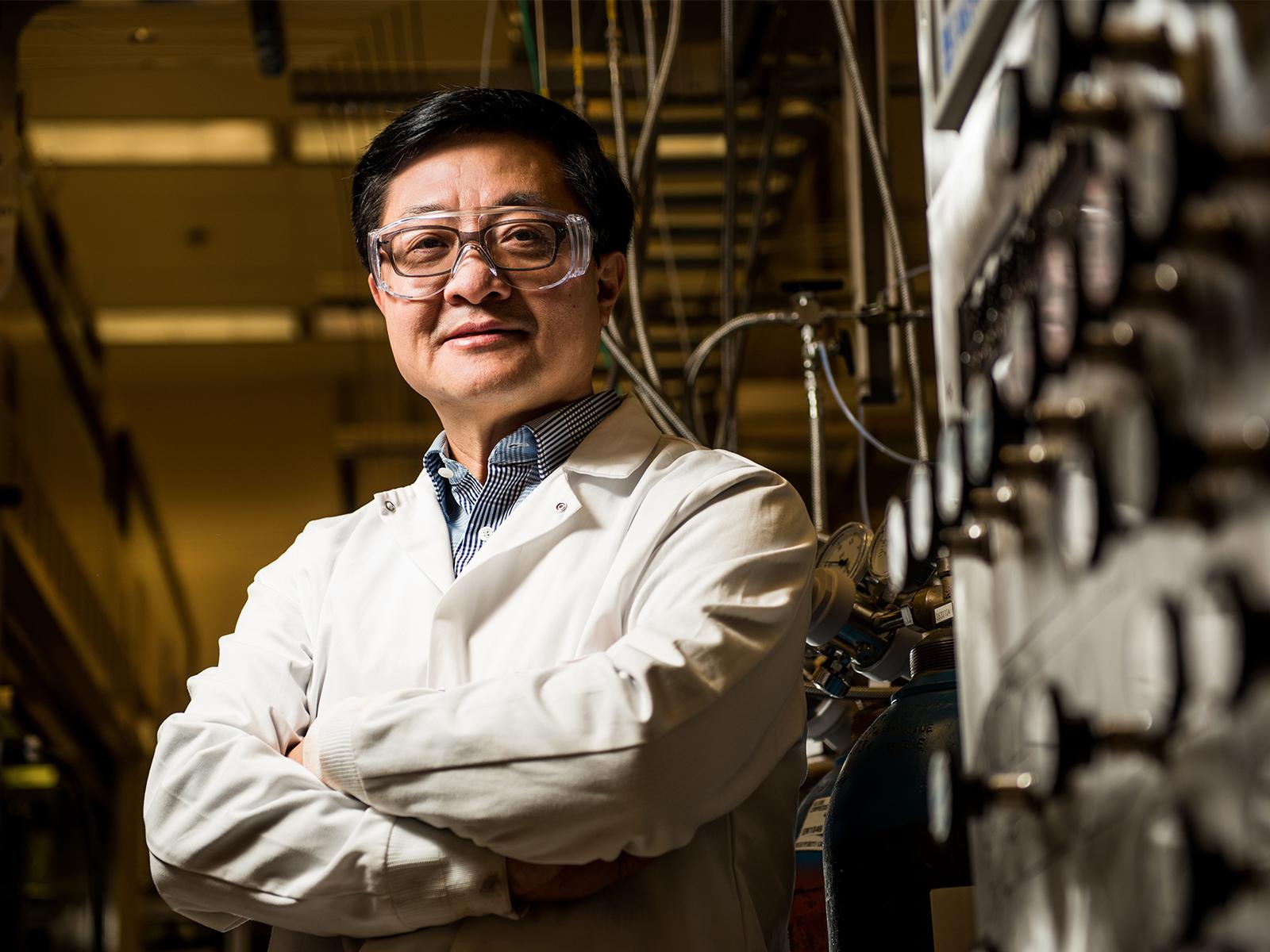Building Science Impact: Joint Appointments Accelerate Research Mission
Chemical engineer Yong Wang explains the influence and opportunity for joint appointments

Yong Wang is an inbound joint appointee from Washington State University at Pacific Northwest National Laboratory.
(Photo by Andrea Starr | Pacific Northwest National Laboratory)
In 2009, Laboratory Fellow and Chemical Engineer Yong Wang assumed an inbound joint appointment at Pacific Northwest National Laboratory (PNNL) from Washington State University (WSU) and today maintains one of the longest joint appointment tenures at PNNL. Joint appointments between PNNL and other research institutions provide new and diverse opportunities for researchers to expand their knowledge and science impact.
“It has allowed me to leverage the strength of both organizations and position my students to benefit from unparalleled opportunities with national laboratories,” said Wang. Forty percent of his students currently have internships at PNNL for their PhD studies, and all others currently collaborate with PNNL scientists.
Wang serves as PNNL’s principal investigator of the emissions control program for decarbonizing applications that are difficult to electrify such as rail, marine, and aviation. He is also co-principal investigator of the catalysis program funded by the Department of Energy, Basic Energy Sciences program, and is the associate director of the Institute for Integrated Catalysis. Beyond his roles at PNNL, Wang serves as a Regents Professor at WSU, a recognition awarded to only 30 faculty members at any given time.
His research focuses on understanding and designing advanced catalytic materials, as well as on developing novel reactors that effectively use the new materials for sustainable technology solutions to current and future energy, resource, and environmental challenges. Wang has authored more than 410 peer-reviewed publications, co-edited 2 books and 5 special journal issues, and given more than 200 invited presentations. He is an inventor on more than 287 issued patents including 110 issued U.S. patents.
“Yong Wang’s research is unique in both advancing fundamental science as well as helping to develop technological solutions to tough problems in catalysis,” said Suresh Baskaran, Director of Research Partnerships at PNNL. “The joint appointment has enabled him to work with colleagues at PNNL in both basic and applied research while also providing the opportunity to train and make an impact on students.”
Joint appointments foster collaborative and transdisciplinary research between both institutions. They broaden capabilities for scientists, provide access to specialized instrumentation and research tools, and give students and interns new educational and training opportunities. PNNL's active and growing joint appointment program includes more than 200 researchers from over 60 university and nonprofit research institutions in the United States and abroad.
“When assuming a joint appointment, I felt it was important to position myself as equally part of the team as other successful scientists,” said Wang. His advice to inbound joint appointees is, “Put yourself in the driver’s seat of your career and journey as if you were a PNNL employee. Look out for others on the team, stay driven toward future opportunities to advance science, and create space for students to learn and grow.”
Published: July 3, 2023